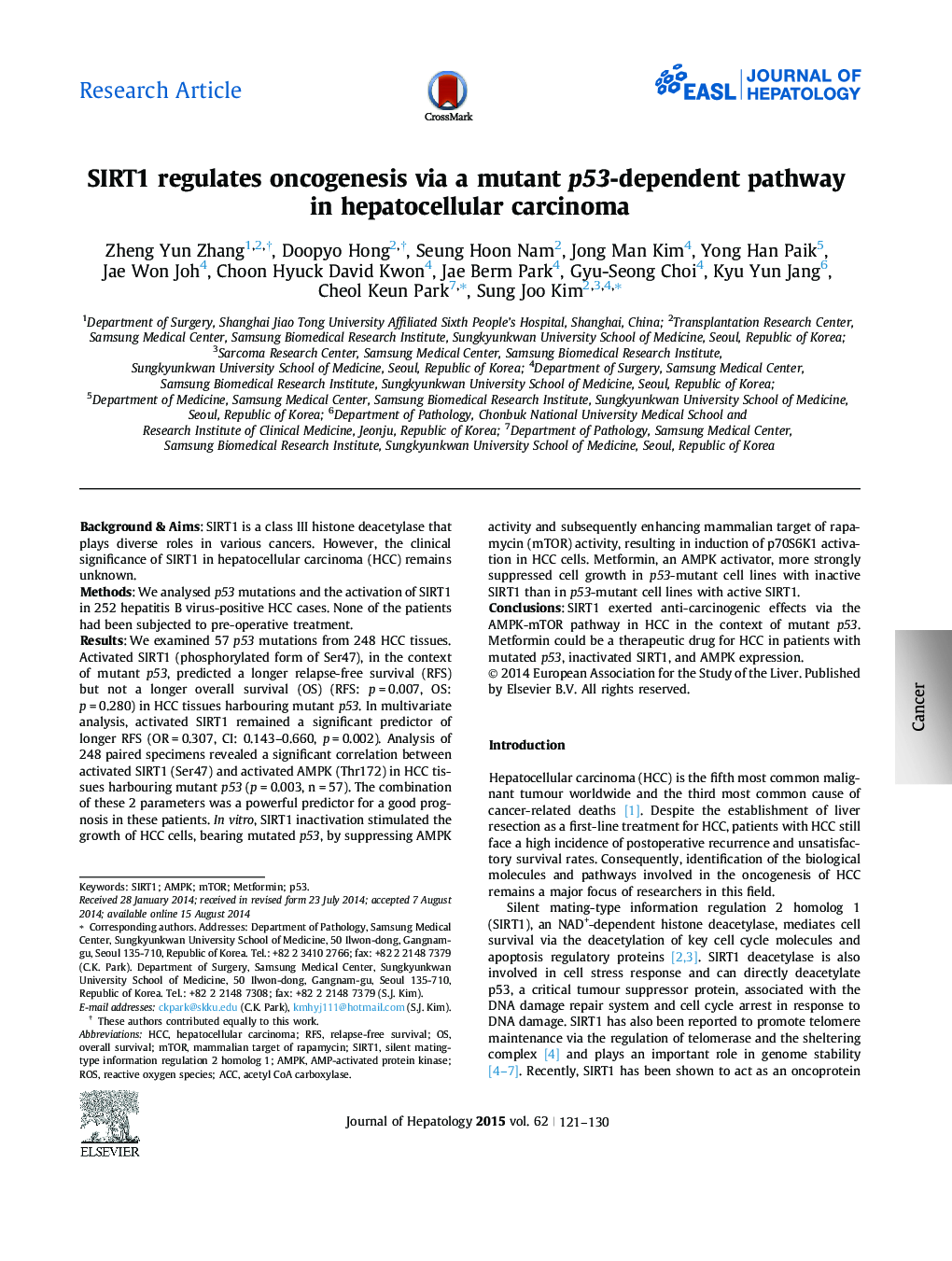| Article ID | Journal | Published Year | Pages | File Type |
|---|---|---|---|---|
| 6102940 | Journal of Hepatology | 2015 | 10 Pages |
Background & AimsSIRT1 is a class III histone deacetylase that plays diverse roles in various cancers. However, the clinical significance of SIRT1 in hepatocellular carcinoma (HCC) remains unknown.MethodsWe analysed p53 mutations and the activation of SIRT1 in 252 hepatitis B virus-positive HCC cases. None of the patients had been subjected to pre-operative treatment.ResultsWe examined 57 p53 mutations from 248 HCC tissues. Activated SIRT1 (phosphorylated form of Ser47), in the context of mutant p53, predicted a longer relapse-free survival (RFS) but not a longer overall survival (OS) (RFS: p = 0.007, OS: p = 0.280) in HCC tissues harbouring mutant p53. In multivariate analysis, activated SIRT1 remained a significant predictor of longer RFS (OR = 0.307, CI: 0.143-0.660, p = 0.002). Analysis of 248 paired specimens revealed a significant correlation between activated SIRT1 (Ser47) and activated AMPK (Thr172) in HCC tissues harbouring mutant p53 (p = 0.003, n = 57). The combination of these 2 parameters was a powerful predictor for a good prognosis in these patients. In vitro, SIRT1 inactivation stimulated the growth of HCC cells, bearing mutated p53, by suppressing AMPK activity and subsequently enhancing mammalian target of rapamycin (mTOR) activity, resulting in induction of p70S6K1 activation in HCC cells. Metformin, an AMPK activator, more strongly suppressed cell growth in p53-mutant cell lines with inactive SIRT1 than in p53-mutant cell lines with active SIRT1.ConclusionsSIRT1 exerted anti-carcinogenic effects via the AMPK-mTOR pathway in HCC in the context of mutant p53. Metformin could be a therapeutic drug for HCC in patients with mutated p53, inactivated SIRT1, and AMPK expression.
